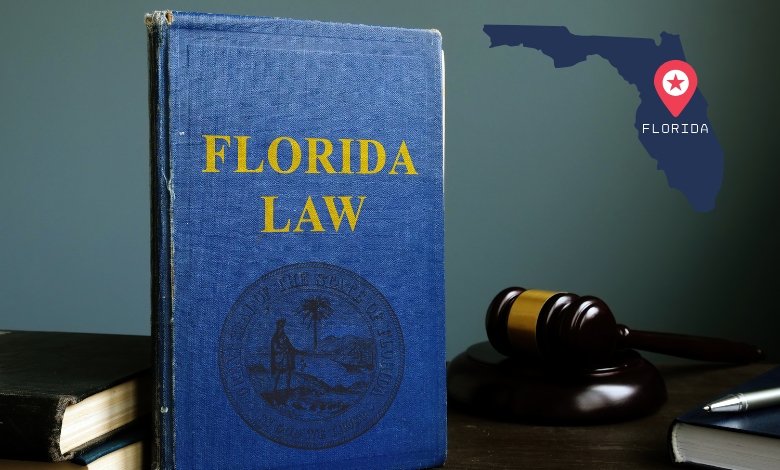Discover what is Florida state law on havingfor travel time, employee rights, and overtime rules for work-related travel between job sites. Learn about travel time compensation in Florida.
The time it takes to travel-something most of us have to endure at one point or another during our workday. If you’re commuting to work or traveling between job sites, you might be wondering: do employers in Florida pay for travel time? You are most definitely not alone if you have ever pondered this. Understanding Florida state law on employee travel time can get dicey, and it’s important to know what you’re entitled to as a worker.
In this article, we’ll take a deep dive into the Florida law on travel time compensation, how it affects you, and what both employees and employers need to know. I’ll also share some personal experiences, to make it a bit more relatable and digestible. The rules can be a little complex; but by the end of this, you will have a very clear idea about the Florida work travel time compensation rules and how they apply to your situation.
Table of Contents
My Personal Journey of Confusion with Travel Time
I remember when I used to be a project manager, jumping between job sites throughout the day. I had assumed all that travel between locations constituted part of my work hours-and why shouldn’t I have? I was still working, just not sitting behind a desk. But when my paycheck seemed to be missing those many hours I’d put in on the road, I began to wonder: “Is travel time compensable in Florida?”
It isn’t quite that cut and dry, it would seem. After speaking with HR, like Rachel Fernandez, and doing some research on Florida wage law for travel between job sites myself, I finally learned what my rights were. Allow me to take you through the main points so you don’t have to go through the same confusion I did!
Florida Law on Travel Time Compensation: The Basics

First things first: let’s straighten out one thing. In Florida, when it comes to compensating travel time, the rules are primarily a product of federal law under the FLSA and not really a variety of state legislation. Florida employee rights, therefore, on travel time interlinks with federal guidelines.
There are some Florida nuances that may vary. Generally speaking, time spent commuting, or traveling from home to your first work location and from your last work location back home is not compensable. In other words, an employer is not required under the law to pay an employee simply for the drive going to and from work.
If you travel from one work location to another during the same workday or need to go on a business trip—whether to attend a conference or meet a client—that travel time counts as compensable. Let me break this into smaller, more digestible sections for you.
1. Commuting to Work: Not Compensable
If you are like most people, you probably spend a good chunk of your day commuting-maybe stuck in traffic or crammed into a crowded bus. Unfortunately, both Florida state law on employee travel time and federal law are not on your side, and your employer doesn’t have to pay you for this time. In fact, the FLSA specifically excludes normal commuting time from compensable work hours.
Consider this: in many respects, you are personally responsible for your commutation. You might live five minutes away from the office, or you may be two hours away, but the law shows that getting to work falls under your personal time. While that might be irksome for any of us who have to put up with long commutes regularly, it’s the law.
2. Traveling Between Work Sites: Compensable
Now, let’s talk about driving between job sites during a workday. Well, this is where it gets interesting-and where many people, myself included, have gotten confused.
If you are out in the field and must drive from one worksite to another throughout the day, that time you put in driving counts as hours worked. For example, let’s say you’re a technician or a field worker who has to travel from job site A to job site B during your shift. Every minute you travel from one worksite to another needs to be considered work time and thus compensated.
I remember years ago, when I worked in construction management, I would start the day off at one site and drive to another location in the afternoon. For some reason, I had it in my head that I wasn’t supposed to be paid for that drive. It wasn’t until later, as I dove deeper into Florida wage law for travel between job sites, that I realized I was wrong-those hours should have been on my paycheck.
3. Overnight or Out-of-State Travel: It Depends
What if your job requires you to travel out of state or overnight? That is where Florida work travel time compensation rules start to get a little more complicated.
If your work conditions force you to be away from home overnight, then your employer must compensate you for the time that you spend actually working during your travel. For instance, this could include driving to a faraway location, or when one attends a work conference, the time one spends actively working-for example, checking email or going to meetings-is compensable.
However, if you just sat on a plane or lay around in your hotel room, that could very well not be compensable, unless of course you were doing something related to work. This is another one of the gray areas where you will want to consult your company’s HR department or a labor lawyer because you are not sure of your rights.
4. Overtime and Travel Time
Now, big question: how does overtime figure into all of this? I mean, to my mind, you do spend extra hours traveling to and fro for work-so shouldn’t that count toward overtime?
The good news is yes; Florida overtime law and travel time do intersect. If the travel time you put in with work pushes your total weekly hours over 40, then you are entitled to overtime pay for those extra hours. In other words, if you drive between job sites or travel in furtherance of your job duties, and such travel is resulting in overtime, then your employer must pay you at the overtime rate, which is commonly 1.5 times your regular hourly pay.
Examples and Scenarios: Breaking It Down

Let’s consider a few different scenarios as a means of showing how these rules work in application.
Example 1: The Daily Commute
You live 30 minutes away from your office; every morning, you would take 30 minutes driving to work, and every evening, you drive the same amount of time home. According to Florida’s state law on employee travel time, employers don’t have to pay for normal commuting time to and from work, as the law doesn’t consider it compensable.
Example 2 Traveling Between Job Sites
You’re a sales manager who has to travel to three different stores in one day. You drive an hour between each store. Under Florida wage law for travel between job sites, you are entitled to be paid for that hour because it falls within your workday.
Example 3: Business Trip Overnight
Your company sends you to attend a conference that takes place in another state. You have to spend two hours at the airport, four hours on the plane, and three hours attending meetings once you arrive. That would make three hours compensable for meetings, but the time you spent in transit might not be compensable unless you were performing work tasks, such as answering emails or preparing reports.
Example 4: Travel Time as Overtime
You take into consideration the 40 hours you work in one week, and for that one week, you add 10 hours traveling from one site to another for one particular project. This then makes your overall number of hours for the week reach 50, hence entitling you to overtime pay for your extra 10 hours, under Florida overtime law and travel-time regulations.
What Employers Need to Know
If you’re an employer, it’s just as important to understand your laws on travel pay for Florida employees. Misclassification of travel time could result in disputes over wages and even legal action. It is good to be cognizant of both federal and state guidelines to make sure that fair, legal compensation of employees is maintained.
Employers should also have clear, written policies about travel time, so that employees know what to expect. This might help reduce misunderstanding and ensure both parties are on the same page.
FAQs
1. Do you get paid for travel time in Florida?
Many employers in Florida consider travel time to be compensable, especially if it occurs within the workday, which can include traveling between job sites or to travel for purposes related to a job. Commuting from home to your regular workplace is not compensable. The Fair Labor Standards Act (FLSA) also plays a role here, clearly requiring employers to pay for travel when it counts as part of an employee’s primary work activities.
2. Is travel time compensable in Florida if the employee is out of town overnight?
Yes, travel time for overnight travel can be compensable in Florida, but it depends on when the travel occurs and what the employee is doing. If the travel occurs during normal working hours-even on weekends-it’s compensable. But time spent off the clock-on a plane or in the hotel room-is generally not compensable unless the employee is doing something related to his or her job.
3. What is the Florida law on travel time compensation for commuting?
Under both Florida and federal law, time spent commuting-that is, traveling from home to your regular worksite and back-is not compensable work time. This holds true for most employees, regardless of how long or by what method of transportation. However, exceptions may arise if the employee had to perform work-related activities during their commute, such as transporting equipment.
4. How does overtime apply to travel time in Florida?
If the travel time during the workday pushes an employee’s total hours over 40 in a week, then that time qualifies for overtime pay under FLSA. In Florida, employees earn overtime at one and a half times their regular pay rate for any hours worked beyond 40 in a workweek, including compensable travel time.
Conclusion: Know Your Rights
In fact, at the end of the day, it is important for both the employee and the employer to be in a position to understand Florida law on travel time compensation. Whether one drives from one job site to another during the workday, or if one travels out of state regularly on business, knowing when one is entitled to compensation can make all the difference. And if there is something that I have learned from my personal experience, it is this: Never be afraid to ask questions. Knowing your rights is always the first step toward making sure you are being compensated fairly for your time.
Therefore, the next time you sit in traffic and wonder whether or not you should be getting paid for your time, you’ll know exactly where you stand. Now, go ahead and make sure travel time works for you, not against you.
Additional Resources
If you’re looking for more detailed information on Florida state law on employee travel time or want to ensure you’re following the right practices, here are some helpful resources:


